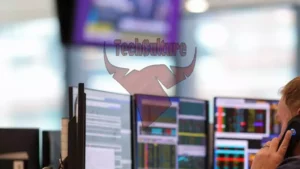In a landmark move, the United States and Russia successfully completed the largest prisoner swap in post-Soviet history this past Thursday. The high-stakes exchange involved 24 individuals and required months of intricate negotiations, along with vital concessions from various European countries. These countries, harboring Russian detainees, released them as part of the elaborate trade-off. The complexities of international diplomacy were on full display, interwoven with stories of resilience, political maneuvering, and a touch of suspense.
The swap saw Russia releasing 16 individuals, including prominent figures such as Wall Street Journal reporter Evan Gershkovich and Paul Whelan, a corporate security executive from Michigan. Both men have captured international attention, with Gershkovich’s detainment seen as an affront to press freedom and Whelan’s case sparking debates on corporate espionage and international justice. Adding to the gravity of the exchange, Vladimir Kara-Murza, a Kremlin critic and Pulitzer Prize-winning writer sentenced to 25 years on charges widely perceived as politically motivated, was also freed. Kara-Murza’s release underscores the international community’s unwavering stance against politically driven prosecutions.
On the flip side, Russia received eight individuals as part of the swap, the most infamous being Vadim Krasikov. Krasikov’s notoriety stems from his 2021 conviction in Germany for the murder of a former Chechen rebel in a Berlin park, an act reportedly orchestrated by Moscow’s security services. This high-profile trade-off highlights the contrasting judicial landscapes and political priorities between the West and Russia. While the U.S. and its allies predominantly released individuals convicted of significant crimes, Russia’s returnees include those largely viewed as victims of political machinations.
The backdrop to this historic exchange is the ongoing conflict between Russia and Ukraine, a situation that has seen several other prisoner swaps. Notably, in December 2022, Moscow freed WNBA star Brittney Griner in exchange for notorious arms trafficker Viktor Bout. These exchanges are a somber reminder of the human cost of geopolitical conflicts, where individuals become pawns in a larger game of international chess. Despite the high-profile nature of Thursday’s deal, there remain several Americans still detained in Russia, their fate uncertain amidst the continuing diplomatic wrangling.
Throughout the negotiation process, Russia remained steadfast in its demand for Krasikov, underscoring his significance to Moscow. His inclusion in the swap was non-negotiable, representing a critical bargaining chip for the Kremlin. This insistence contrasted sharply with the profiles of the Americans and Europeans released by Russia, most of whom were designated by the U.S. as wrongfully detained or held under dubious charges. The stark differences in the nature of the detainees reflect the broader ideological divides between the negotiating powers.
Amidst the celebrations and criticisms, Thursday’s deal serves as a poignant reminder of the complexities and compromises inherent in international diplomacy. The successful completion of the largest post-Soviet prisoner swap is a testament to the power of negotiation and the enduring human spirit. It also leaves the world watching closely, pondering the next moves in this intricate dance of geopolitics.



